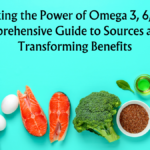Exploring the Synergy: Nutritional Diet and Exercise, Nutritional Diet and Attitude
Dive into the dynamic relationship between nutrition and exercise, uncovering the symbiotic benefits that elevate physical well-being. In parallel, discover the profound impact of nutrition on your mental outlook as we explore the link between a nutritional diet and a positive attitude. This enlightening journey will equip you with valuable insights into fostering both physical vitality and a resilient mindset for a holistic approach to health.
The Symbiotic Relationship Between Nutrition and Exercise
– Unveiling the interconnected impact of nutrition and exercise on overall health.
– Understanding how the right nutrition enhances exercise performance and supports fitness goals.
Foods that Support Physical Activity and Recovery
– Exploring the role of macronutrients in fueling workouts and aiding post-exercise recovery.
– Highlighting specific foods that contribute to sustained energy, muscle repair, and overall well-being.
In this section, we’ll explore the dynamic relationship between nutrition and exercise, emphasizing how the right dietary choices can significantly impact physical performance and recovery.

The Symbiotic Relationship Between Nutrition and Exercise
Understanding the Interconnected Impact
The synergy between nutrition and exercise is fundamental for achieving fitness goals and overall well-being. Key points include:
Energy Balance
– Balancing calorie intake with energy expenditure to achieve fitness goals, whether it be weight loss, maintenance, or muscle gain.
Nutrient Timing
– Optimizing nutrient intake around workout sessions to enhance performance and recovery.
Hydration
– Emphasizing the importance of staying hydrated for optimal physical performance.
Adaptations to Exercise
– How the body adapts to different types of exercise and the nutritional support required for these adaptations.

Foods that Support Physical Activity and Recovery
Fueling Workouts with Macronutrients
Effective exercise nutrition involves understanding the role of macronutrients:
Carbohydrates
– Providing a primary energy source for moderate to high-intensity exercise. Examples include whole grains, fruits, and legumes.
Proteins
– Supporting muscle repair and growth. Sources include lean meats, dairy, and plant-based proteins like tofu and legumes.
Fats
– Serving as a secondary energy source, especially during prolonged exercise. Healthy fat sources include avocados, nuts, and olive oil.

Post-Exercise Recovery Foods
Optimal recovery is crucial for consistent exercise performance. Focus on:
Protein-Rich Foods
– Supporting muscle repair and synthesis. Examples include lean meats, eggs, dairy, and plant-based protein sources.
Carbohydrates for Glycogen Replenishment
– Replenishing glycogen stores depleted during exercise. This can be achieved through whole grains, fruits, and starchy vegetables.
Hydration and Electrolytes
– Rehydrating the body and replenishing electrolytes lost through sweat. Water, coconut water, and sports drinks can be beneficial.
A Holistic Approach to Exercise Nutrition
Achieving optimal results from exercise requires a holistic approach that integrates nutrition, hydration, and recovery strategies. Whether engaging in endurance training, strength workouts, or a combination of both, understanding the symbiotic relationship between nutrition and exercise is key to unlocking one’s full physical potential.

Nutritional Diet and Attitude
The Psychological Impact of Nutrition on Mental Health
– Unveiling the intricate connection between dietary choices and mental well-being.
– Examining how nutrition influences mood, stress levels, and overall cognitive function.
Foods that Promote a Positive Mindset
– Identifying specific nutrients and foods that contribute to a positive attitude and mental resilience.
– Exploring the role of a balanced diet in supporting emotional well-being and stress management.
In this section, we delve into the profound impact of nutrition on mental health, understanding how our dietary choices can significantly influence our attitude, mood, and overall cognitive function.
The Psychological Impact of Nutrition on Mental Health
Understanding the Intricate Connection
The link between nutrition and mental health is a fascinating aspect of well-being. Key points include:
Nutrients and Neurotransmitters
– Exploring how nutrients like omega-3 fatty acids, vitamins, and minerals contribute to the production of neurotransmitters that regulate mood.
Gut-Brain Axis
– Investigating the bidirectional communication between the gut and the brain and its influence on mental health.
Inflammation and Mental Health
– Examining the role of inflammation in mental health and how an anti-inflammatory diet can positively impact mood.
Blood Sugar Levels
– Understanding the connection between balanced blood sugar levels and sustained energy, focus, and mood stability.
Foods that Promote a Positive Mindset
Nutrients and Foods for Mental Resilience
Certain nutrients and foods play a crucial role in fostering a positive mindset:
Omega-3 Fatty Acids
– Found in fatty fish, flaxseeds, and walnuts, omega-3s are linked to improved mood and reduced risk of depression.
Antioxidant-Rich Foods
– Berries, dark chocolate, and colorful vegetables contribute antioxidants that support brain health and reduce oxidative stress.
Whole Grains
– Providing a steady release of energy, whole grains like brown rice and quinoa contribute to stable blood sugar levels.
Probiotics
– Fermented foods like yogurt and kefir promote a healthy gut microbiome, positively influencing mood through the gut-brain axis.

A Balanced Diet for Emotional Well-Being
Maintaining a positive attitude requires a balanced and varied diet:
Lean Proteins
– Essential for neurotransmitter synthesis, lean proteins from poultry, fish, and plant sources support mental health.
Fruits and Vegetables
– Rich in vitamins, minerals, and antioxidants, colorful fruits and vegetables contribute to overall well-being.
Hydration
– Staying well-hydrated supports cognitive function and helps prevent dehydration-related mood swings.
Conclusion: Nourishing the Mind for a Positive Outlook
Understanding the profound impact of nutrition on mental health allows individuals to make informed dietary choices that contribute to a positive attitude, emotional resilience, and overall well-being. By embracing a balanced and nutrient-rich diet, one can actively support their mental health journey.
https://en.wikipedia.org/wiki/Exercise
Proper Nutritional Diet, Fat: A Comprehensive Guide to Sources and Health Benefits (Part 10/15)






